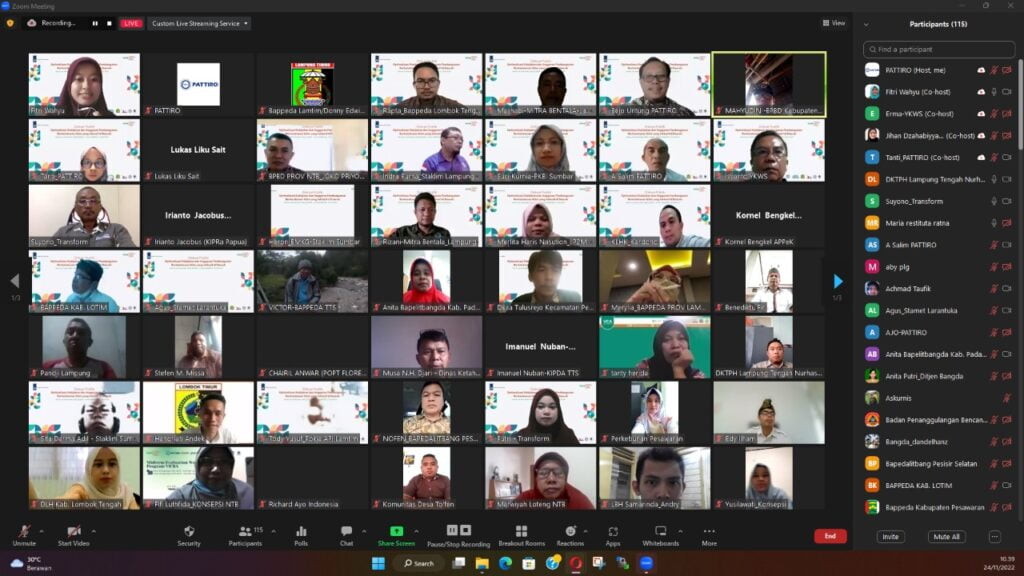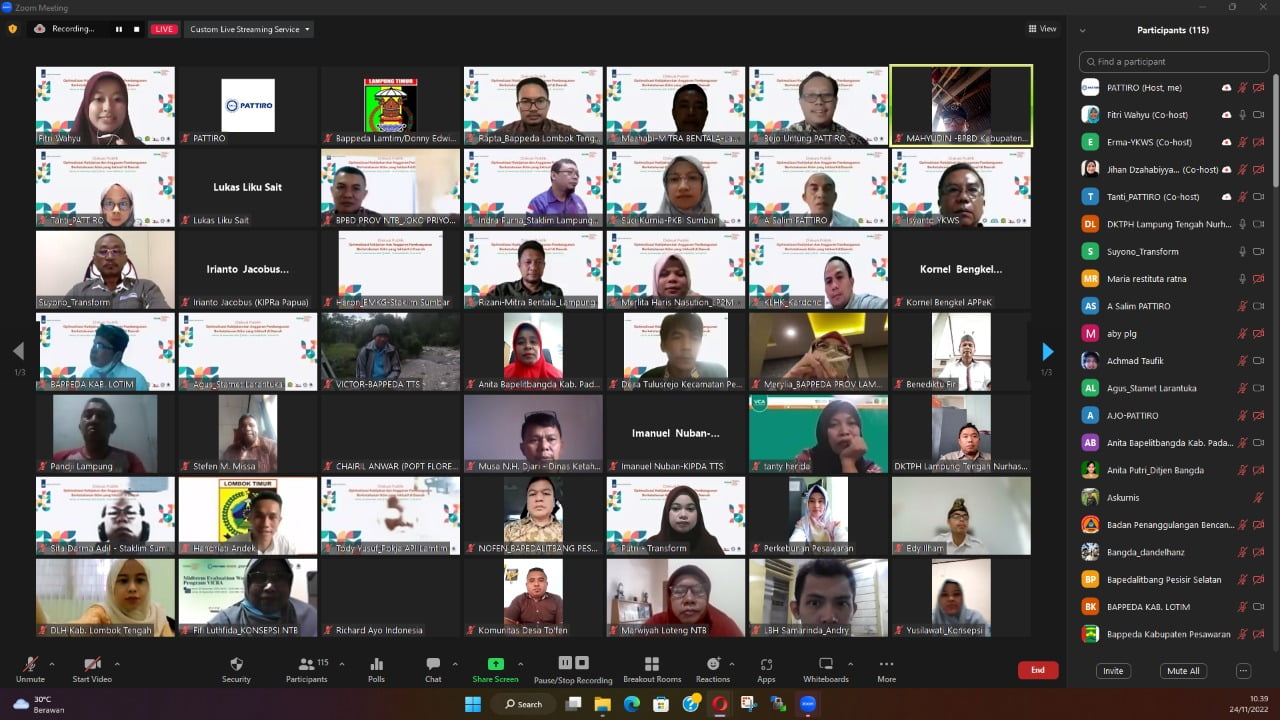
Everybody is affected and vulnerable in disaster caused by climate change. Nevertheless, the distribution of vulnerabilities among vulnerable group, such as women, elderly, people with disabilities, and children, becomes larger in a disaster. Gender Equality and Social Inclusion (GESI) Specialist of VICRA, Ramadhaniati, argue vulnerable group issue in facing the disaster caused by climate change is significant as the effect of climate change is neutral gender since there is systemic inequality. Moreover, natural resources in the agricultural sector are disrupted. This statement emerged during the Public Discussion on Optimizing Inclusive Climate Resilience Development Policies and Budgets in the Regions which was held online on 24 November 2022.
Ramadhaniati provides an overview regarding the problem of gender inequality in climate change. Women experience greater misfortune than men, because of the domestic role that has been played by women so far. As a result, women work harder in providing household needs. In addition, climate change causes a high potential for child marriage and school dropouts due to low community income due to lack or crop failure.
Disturbances in the agricultural sector caused by climate change can affect public health, especially in vulnerable groups. Climate change makes vulnerable groups very potentially infected with communicable diseases such as dengue fever, diarrhea, malnutrition, and so on. Climate change causes extreme droughts and floods. The disaster can trigger diseases that can infect people, especially vulnerable groups.
“The development planning and budgeting process that aims to adapt and mitigate climate change needs to pay attention to the side of inclusiveness so that the needs of vulnerable groups can be met, and they are resilient in facing climate change,” said Ramadhaniati.
Tasks executor (Plt), Assistant Deputy for Gender Mainstreaming for Social and Cultural Affairs of the Ministry of Women’s Empowerment and Child Protection, Ratih Rachmawati, added that understanding regarding gender in disaster issues due to climate change has not been widely socialized. So far, assistance in disasters is still gender neutral and has not been responsive to vulnerable groups. Therefore, disaggregated data is important in discussing disaster issues due to climate change.
Apart from accommodating the gender gap in climate change adaptation, the involvement of youth is also needed to accommodate their aspirations. The voices of youth are rarely accommodated by policy makers in formulating policies related to climate change adaptation. In fact, the impact of climate change affects the lives of future generations as the nation’s successor. One of VICRA’s partners, Bengkel APPek, organizes youth groups through the South-Central Timor Youth Voice Room by developing networks and involving them in multi-stakeholder action planning. “Now is the time for young groups to take part in determining their fate in climate change adaptation for the present and the future,” said District Coordinator VICRA-Executive Director of APPeK Workshop, Vinsensius Bureni.
Apart from involving vulnerable groups in climate change adaptation actions, the involvement of the private sector is also needed to contribute to the success of climate change adaptation programs. The private sector can be involved in funding community empowerment programs through corporate social responsibility or what is familiarly known as corporate social responsibility (CSR) programs. “In reality, the government’s budget for climate change action is still limited. Therefore, it is necessary to involve all parties, especially companies, to jointly develop climate change actions through their CSR funds,” said District Coordinator VICRA, PKBI West Sumatra, Suci Kurnia Sari.
Climate change adaptation requires multi-stakeholder collaboration. VICRA seeks to create a civic space in encouraging the involvement of vulnerable groups and advocating for their position in climate resilience action that focuses on the agricultural sector. PATTIRO Program Manager, Agus Salim, said climate change would have an impact on economic, natural, human and socio-political aspects. These four aspects are risky assets, if climate change occurs.
Local governments have issued policies to respond to climate change, including budgets in this regard. However, the synergy between the central and regional governments in climate-resilient development has not yet been developed. Therefore, PATTIRO provides recommendations for the government in the form of guidance in the regional planning and budgeting stages, expanding knowledge about climate change and its adaptation strategies, including gender mainstreaming in the development of climate change studies, and including climate change adaptation issues in regional development documents. In addition, PATTIRO encourages the private sector to collaborate with the central and regional governments in climate resilience actions.





